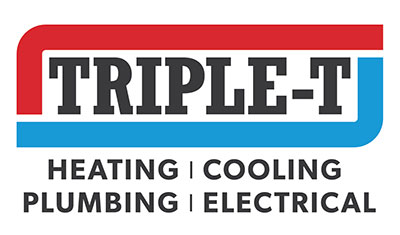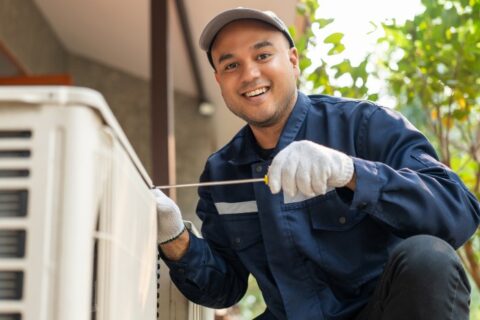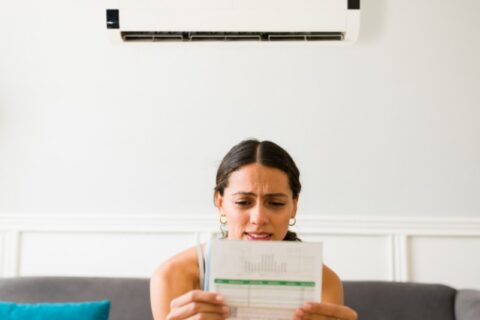Best HVAC System Upgrades for Allergies
Do you notice your asthma and allergy symptoms flaring up with the changing seasons? You’re not alone. As many as 60 million people in the US have allergic rhinitis, more commonly known as hay fever, a condition that causes unpleasant symptoms after inhaling pollen.
Staying inside and keeping the windows closed to avoid high pollen counts is one thing, but what about indoor allergies? After all, trees, grasses, weeds, and flowering plants make plenty of people sneeze, but allergens like dust and pet dander can also be produced indoors.
With the right upgrades, your heating, ventilation, and air conditioning (HVAC) equipment can improve indoor air quality and keep allergy symptoms at bay. Learn which upgrades HVAC technicians recommend and other tips to allergy-proof your Utah home.
Control Allergies with Your HVAC System
Your heating and cooling equipment is primed to help fight allergies. All you need are the right additions and maintenance habits. Here’s how to use your forced-air heating and cooling system to control indoor allergies.
Choose a More Efficient Air Filter
Most furnaces and air conditioners come with a basic filter rated 1 to 4 on the Minimum Efficiency Reporting Value (MERV) scale, which ranges from 1 to 20. Consider upgrading to a MERV 6 to 13 filter with a tighter weave, able to remove significantly more airborne particles without impeding airflow. Once you choose a quality air filter, replace it every 30 to 90 days, or as the manufacturer recommends, to prevent it from becoming overly clogged.
Use an Air Purifier
A whole-house air purifier is better than a regular filter. In fact, the best ones can remove up to 99.98 percent of airborne particles down to 0.1 microns, making them 100 times more effective than a standard 1-inch HVAC filter. Just be aware that ionizing air purifiers produce trace levels of ozone. This known lung irritant could undermine your allergy-fighting efforts if anyone in your household is sensitive to ozone.
Put in a UV Germicidal Light
Certain wavelengths on the ultraviolet spectrum have germ-killing properties, making UV lights a valuable addition to your HVAC system. As airborne bacteria, viruses, mold spores, and other microorganisms pass by, the UV light renders them unable to replicate, stopping the spread of germs throughout your home.
Upgrade to a Whole-House Humidifier
Microorganisms thrive during Utah’s dry winter. After all, low-humidity environments have fewer airborne water droplets, allowing germs and allergens to spread more easily. Dry nasal passages also make you more susceptible to illness if you inhale bacteria and viruses.
Rather than combating dry indoor air with an inconvenient tabletop humidifier, install a whole-house unit that works in tandem with your HVAC system. This upgrade humidifies your home evenly based on the setting you program into the built-in humidistat. In addition to improving your allergy symptoms and helping you get over the flu faster, a whole-house humidifier also reduces chapped lips, cracked skin, and static shock.
Install an Energy Recovery Ventilator
Contrary to popular belief, furnaces and air conditioners don’t pump fresh air into your home. Instead, they re-circulate indoor air after heating or cooling it. This leaves your home feeling stuffy, especially if it’s built according to today’s high energy-efficiency standards.
To combat this, consider installing an energy recovery ventilator (ERV), a balanced system that exhausts stale indoor air and pumps in fresh air from the outside. The passing streams don’t mix, but the temperature and humidity of the outgoing air transfer to the incoming air to keep energy costs low.
Schedule Annual Maintenance
Once your HVAC system upgrades are in place, you must maintain them properly to ensure optimal performance. After all, leaks can develop, dust can settle, and UV lights can burn out over time. With annual AC inspections every spring and heating maintenance every fall, you’ll know your equipment is running as smoothly, reliably, and cleanly as possible.
Other Tips to Allergy-Proof Your Home
Despite your best efforts, it’s impossible to keep every allergen out of your home. That’s why you must keep up a cleaning routine to remove irritating particles before they worsen your allergy symptoms or cause an asthma attack. Help your family breathe easier with these tips to allergy-proof your home.
Vacuum Carpet and Upholstery Often
It’s important to vacuum weekly to remove dust, dust mites, pet hair, pollen, and other allergens that have settled in the carpet. Use the upholstery attachment to remove allergens hiding in your furniture as well. If possible, get rid of your wall-to-wall carpeting in favor of hard flooring materials like tile, vinyl, or hardwood. These surfaces don’t harbor allergens the way carpet does and are easy to keep clean by sweeping and mopping.
Dust without Chemicals
Using chemical dust sprays could backfire by irritating your allergies. Dusting with a feather duster is no good either because this simply spreads dust around. A better option is to attract and remove dust with a slightly damp microfiber cloth. You can even wash the cloth with your laundry to reuse later.
Keep Pets Out of the Bedroom
Pets make wonderful companions, but fur and dander can aggravate your allergies. If you can’t bear to part with your furry friend, at least keep the animal out of your sleeping area to prevent allergens from accumulating there.
Wash Your Bedding Frequently
With or without pets, you should strip your bed every week or two, washing the sheets in hot water to kill dust mites. Then, encase your pillow, mattress, and box spring with hypoallergenic covers to reduce your exposure to allergens while you sleep.
Contact Triple T for Help Improving Indoor Air Quality
The indoor air quality specialists at Triple T Heating, Cooling & Plumbing would be happy to install allergy-friendly HVAC system upgrades in your home. We are licensed, bonded, and insured, with nearly 50 years of experience providing top-notch indoor air quality services. Our specialty areas include UV lights, air cleaners and purifiers, whole-house humidifiers, and ventilation systems.
To learn more about keeping indoor allergens at bay, please call us at 801-798-7711 if you live in Utah County or 435-275-4011 if you’re a Washington County resident. You can also contact us online to ask questions or schedule HVAC services.


